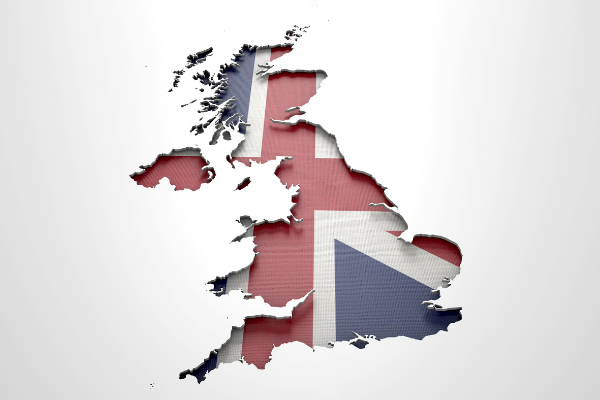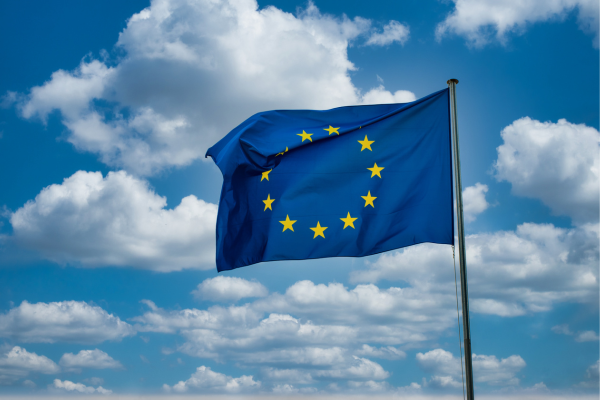BY:
SHARE:

The EU Exit introduced numerous challenges for UK traders, many of which have been resolved over time. However, trading with Northern Ireland (NI) remains particularly complex. The Windsor Framework was developed to address these complexities, introducing a phased approach to implementing final regulations for Northern Ireland. This process began in October 2023 with the UK Internal Market Scheme (UKIMS) launch.
It is essential to distinguish UKIMS from the UK Internal Market System, often referred to as the "Green Lane." While both are integral to trade between Great Britain (GB) and Northern Ireland, they serve distinct purposes. The full implementation of the Windsor Framework is anticipated by 31 March 2025, offering GB and NI traders a more predictable and stable trading environment. When fully implemented, traders authorised to move goods under UKIMS can access the green lane, which means moving goods into Northern Ireland without the requirement for supplementary import declarations and the ability to use a reduced data set to move these goods.
What is UKIMS?
UKIMS was introduced under the Windsor Framework to streamline and simplify the movement of goods from GB to NI. Its primary objective is to minimise regulatory burdens and reduce trade friction within the UK’s internal market while upholding Northern Ireland’s obligations under the EU Single Market.
The scheme is designed to:
- Reduce checks and paperwork for eligible goods entering Northern Ireland.
- Facilitate trade for goods intended solely for sale and consumption within Northern Ireland, ensuring they remain within the UK Internal Market.
- Provide businesses with a transparent and compliance-orientated pathway for trade, aligning regulatory requirements without compromising compliance.
By implementing UKIMS, the UK government seeks to enhance the efficiency of domestic trade while ensuring the respect of both UK and EU regulatory commitments.
Key Benefits of UKIMS
One of the significant advantages of UKIMS is its provision for authorised traders to classify certain goods as "not at risk," even if they might otherwise be considered "at risk."
This classification allows for:
- Zero import duties on eligible goods.
- Exemption from specific EU Customs requirements.
This streamlined approach reduces regulatory burdens, enabling smoother and more cost-effective trade between GB and NI while treating eligible goods as domestic UK movements.
Classification of Goods: "At Risk" vs "Not At Risk"
Under the Windsor Framework, goods traded between GB and NI are classified as either "at risk" or "not at risk" of entering the EU Single Market. This distinction determines whether EU tariffs and Customs controls apply.
Not At-Risk Goods
Goods classified as "not at risk" are intended to remain within Northern Ireland and not enter the EU Single Market. These goods benefit from:
- Exemption from EU tariffs and Customs checks.
- Simplified Customs procedures.
- Reduced or zero tariffs, provided specific eligibility requirements are met.
To qualify, traders must:
- Demonstrate that the goods are for sale or use exclusively within Northern Ireland.
- Register under UKIMS, which will grant access to the "Green Lane" (available from 31 March 2025) for expedited Customs processes.
- Goods subject to EU Trade Defence Measures such as anti-dumping duties can never be classed as “Not at Risk.”
At-Risk Goods
Goods classified as "at risk" could potentially move into the EU Single Market from Northern Ireland. This classification entails:
- Subjecting goods to EU Customs duties, tariffs, and regulatory checks.
- Completing Customs declarations and adhering to EU regulatory standards.
- The "at risk" classification applies to goods likely to be distributed, sold, or moved to EU destinations, ensuring they meet EU compliance requirements.
Compliance and the Windsor Framework
The "at risk" vs. "not at risk" classification is a cornerstone of the Windsor Framework's compliance mechanisms. It balances the need to protect the EU Single Market with the need to facilitate seamless trade within the UK as a whole, including Northern Ireland.
Businesses trading between GB and NI must:
- Implement robust internal controls.
- Maintain proper documentation.
- Register under UKIMS, if eligible, to access the benefits of "not at risk" classifications.
Understanding this classification is critical for compliance and operational efficiency.
Is UKIMS Right for Your Business?
Before applying for UKIMS, businesses should evaluate their ability to meet the scheme's compliance and evidential requirements. Considerations include:
- Consignment-level compliance: Can your business provide the necessary evidence for every consignment?
- Tariff evaluation: Does your trade require UKIMS, or are there alternative pathways?
- Eligibility: What type of goods are being moved? Are they subject to processing, or are they subject to EU Trade Defence Measures?
For instance, goods with an EU duty rate of zero and not intended for processing may not require UKIMS authorisation. Such goods would automatically qualify as "not at risk," simplifying their movement into Northern Ireland without additional compliance burdens.
Tariff Preference vs. UKIMS
In some cases, tariff preference under the Trade and Cooperation Agreement (TCA) may offer a viable alternative to UKIMS. For example:
- Goods qualifying for tariff preference under TCA can move "at risk" but still enjoy a 0% duty rate.
- Meeting preferential origin requirements may be less burdensome than UKIMS compliance obligations.
Businesses should weigh up their options to determine the most efficient and compliant trade pathway.
Practical Scenarios and Responsibilities
Compliance under UKIMS always rests with the importer. For example:
Suppose you are a GB business sending goods to a retailer in Northern Ireland under DDP Incoterms®. In that case, you are responsible for proving that the goods remain within the UK Internal Market. Evidence must demonstrate that goods are not distributed to the Republic of Ireland or other EU markets.
This process requires robust documentation and open communication with your clients. However, obtaining commercially sensitive data from customers can be challenging, making it essential to establish clear terms before relying on UKIMS for declarations.
Final Thoughts
UKIMS is an integral part of the Windsor Framework, supporting compliance for goods moving between GB and NI. Only traders registered under UKIMS can utilise its benefits, which include reduced administrative burdens and streamlined trade processes.
As the full implementation of the Windsor Framework approaches in March 2025, businesses must ensure they understand and leverage UKIMS effectively.
If you are interested in exploring this topic further, you might find it worthwhile to consider the training courses and live clinics offered by Strong & Herd LLP:
OneCall™ Email assistance as and when required; A one-call solution for all your import, export and customs enquiries. Export help. Import help. Customs help.
Stay informed about customs and international trade matters by subscribing to our OneCall™ service. This comprehensive offering includes a dedicated email helpline for support, timely practical updates direct to your inbox (Did You Know?), monthly UK Customs & Trade Briefings and access to an interactive members' area with an exclusive community for our subscribers.
International Trade Updates & Spotlight Newsletter
Subscribe to our free information emails covering international trade topics...









